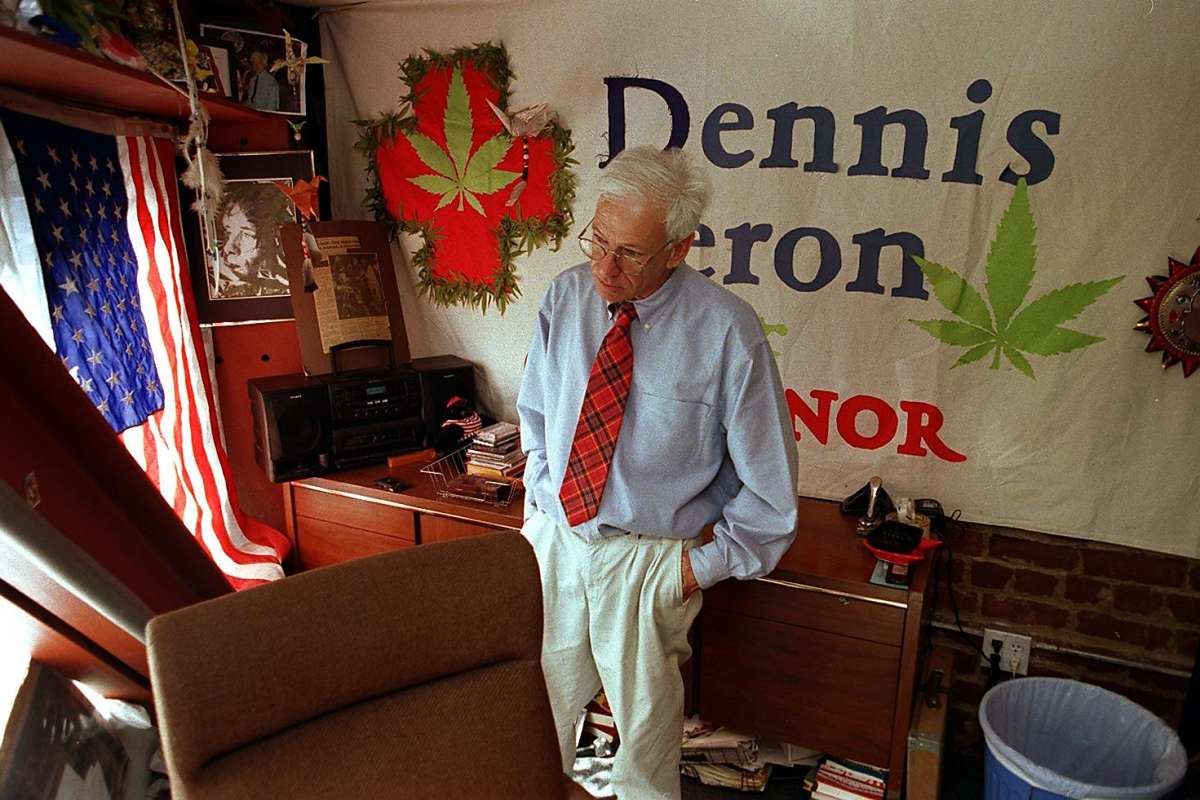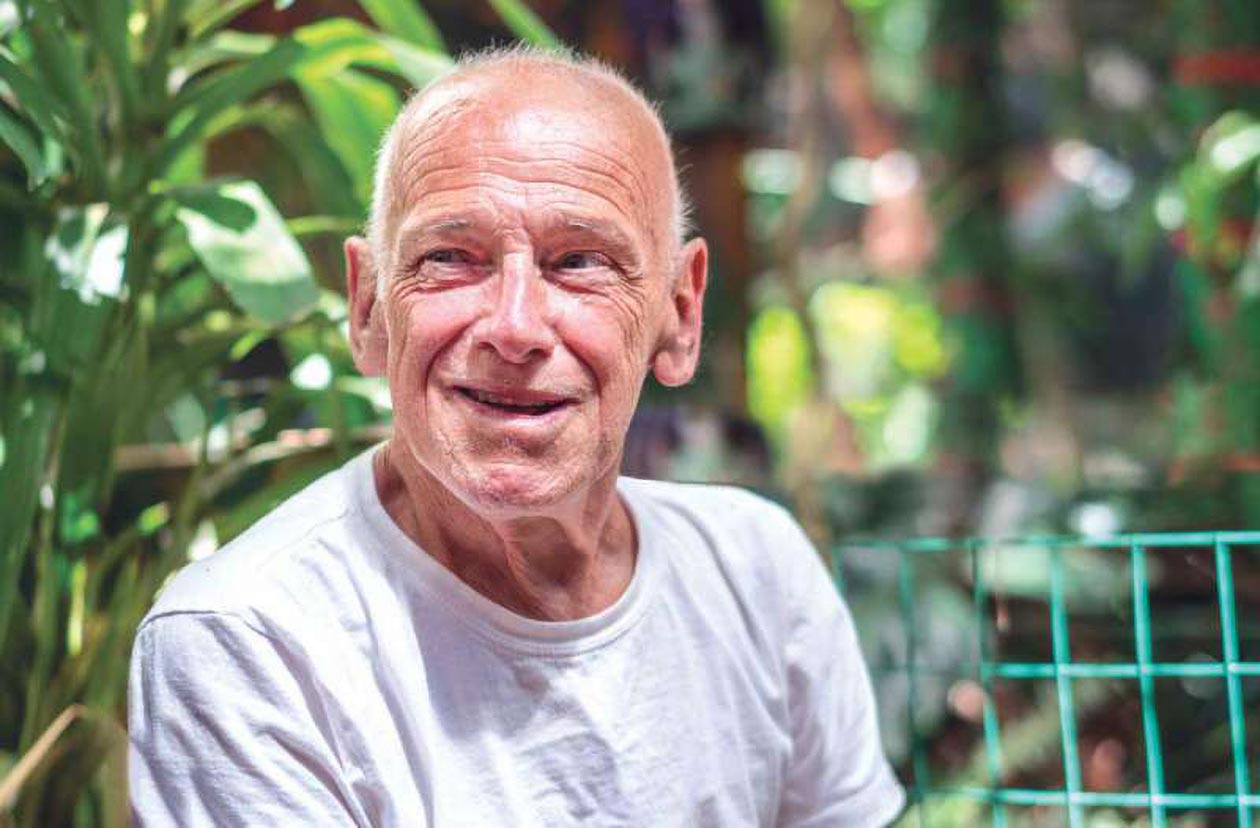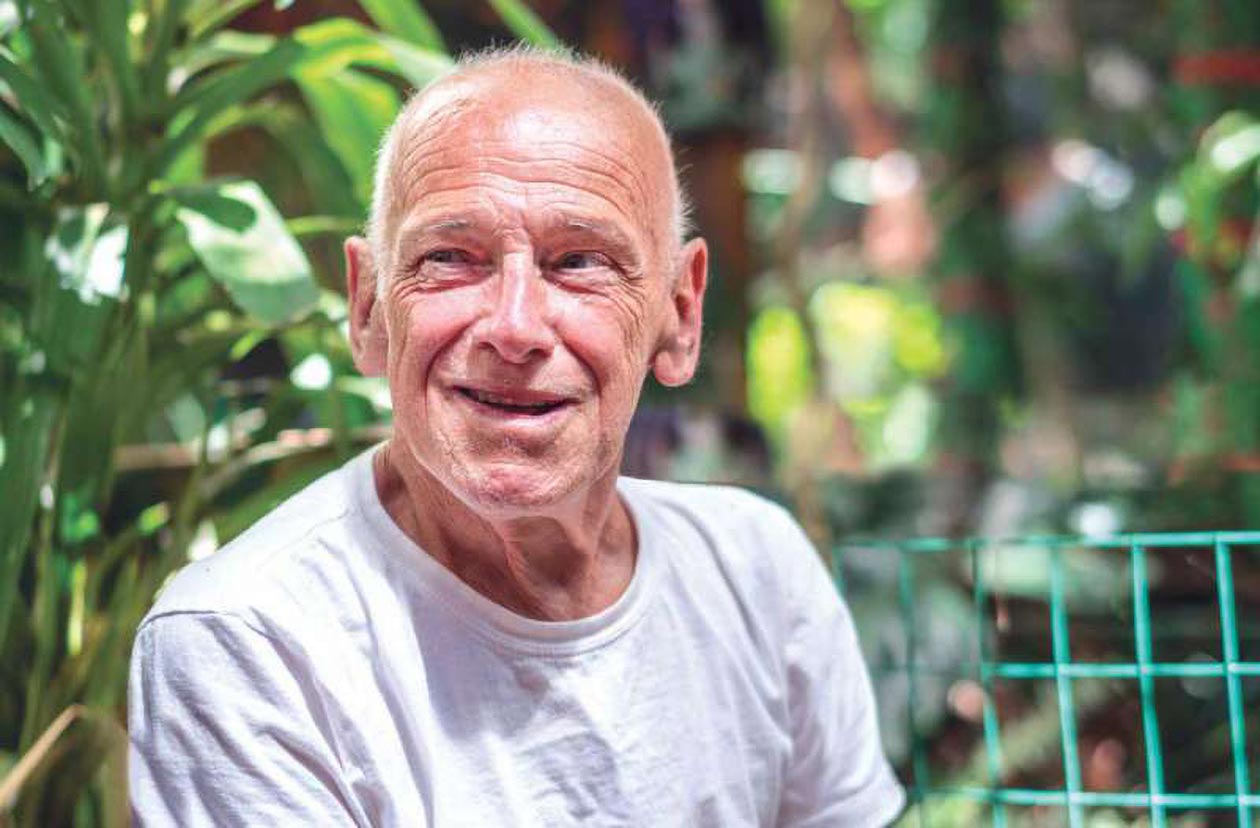Pride Month is always a cause for celebration. But for a medical cannabis company like ours, it's especially important to take a moment to honor the brave protestors and pioneers. Were it not for the AIDS activists of the 80s, medical cannabis would probably still be a crime. In honor of Pride Month, we want to highlight Dennis Peron, who is often referred to as “The Father of Medical Marijuana.”
After his discharge from the U.S. Air Force, Peron settled in San Francisco, a city he had fallen in love with during a three-week furlough en route to Vietnam. As a gay man living in San Francisco, Peron was no stranger to homophobia and oppression. But the AIDS epidemic was creating a new threat as it swept through gay communities, killing tens of thousands of people through the ’80s. By 1990, over 700,000 people were living with the disease; including Peron’s partner Jonathan West, who would succumb to the disease later that year.
While caring for his partner, Peron observed how cannabis helped to alleviate some of the symptoms and side effects of the pharmaceutical cocktail prescribed to AIDS patients. Wanting to further help West and others suffering in their community, Peron began advocating for medical marijuana.
By the ’90s cannabis had become a well-known secret within the AIDS/HIV community. While cannabis was not available for purchase through legal routes, in 1990 the Washington Post reported on an “underground network of AIDS patients passing the word about the drug’s medicinal benefits.”
Peron’s first major victory in the medical cannabis movement was in 1991 when he helped pass Prop P, a San Francisco ballot initiative that allowed licensed physicians to “prescribe hemp preparations for medical purposes.”
Dennis Peron stands inside his infamous Cannabis Buyers Club (photo: San Francisco Chronicle)
Shortly after, Peron had his next victory when he opened the Cannabis Buyers Club, the first public dispensary. Known as the CBC, the Buyers Club was modeled after buyer’s clubs for AIDS patients, which gave those suffering from the disease access to non-FDA approved drugs that could help manage the illness. The CBC was a safe place for AIDS patients to buy and smoke cannabis. Over time, Peron expanded the clientele to people with disabilities, the terminally ill, and the elderly.
During its height, the club served nearly 5,000 patients and became a support community for those suffering. Speaking to the San Francisco Chronicle, medical cannabis patient Wayne Justmann recalls the importance of the social network that formed around the CBC, saying: “Tell me where the hell else you, as an AIDS or HIV-positive individual, could go to get a hug?”
The CBC remained open until 1995 when narcotics agents raided the club, despite opposition from local officials and law enforcement who condoned the activities of Peron and the CBC. Peron spoke of the raid, saying: “We have fended off the forces of division and hate with our pain and love. The DEA and FBI decided to shut down the Buyer’s Club in April of '95. They gathered forces from around the country. They had twenty agents videotaping and following members home. They followed one member who was bringing baked goods to his dying friends in a local hospice. After determining that they needed at least 50 agents, federal authorities requested 30 officers from the San Francisco Police Department… Not one San Francisco Police Officer would participate in this ill-thought-out raid.”
After the raid, the resulting backlash and national media attention brought an influx of cash and energy to the campaign for Proposition 215, the landmark medical marijuana initiative that allowed Californians to access cannabis. The passage of the 1996 Compassionate Use Act earned Peron the title of “the Father of Medical Marijuana,” and he continued his cannabis activism for the rest of his life, passing away in 2018 at the age of 72. Prop 215 ultimately inspired other U.S. states to adopt medical marijuana laws, meaning that Peron’s legacy paved the way for full adult-use legalization twenty years later.
Today, nearly thirty years after Peron opened the first legal dispensary, over 40 states now have legal cannabis programs and we can thank Dennis Peron for his many decades fighting to make life-changing cannabis legally available to millions of people throughout the United States.


